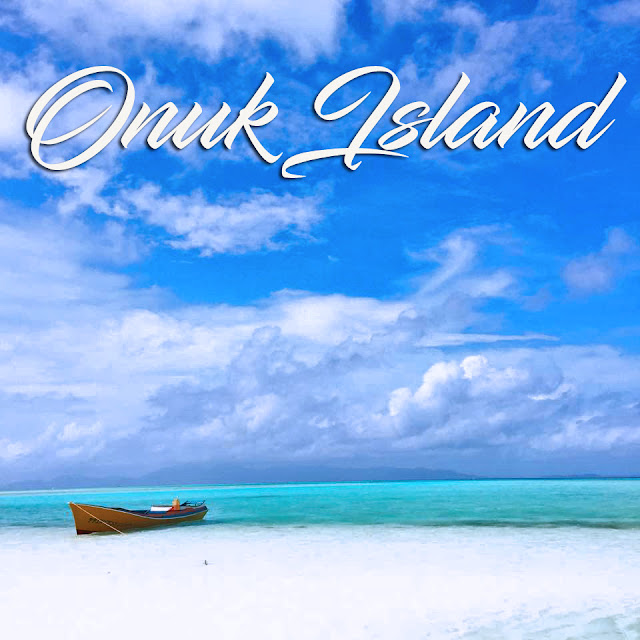Tulip Water Filter System: Simple, safe & affordable drinking water for every Filipino
Monday, March 26, 2018
Water is very essential to all man kind and every living creature in the world. History shows that civilizations that lived near rivers and lakes flourished and grew. At least 70% of the earth’s surface is covered by water and is used by all living things in countless ways. Fish and other aquatic animals swim in it. These are caught by men and bigger animals for their nourishment. Ships and boats go on rivers and waterways for transportation of goods like timber, oil, and natural gas. The maritime industry is a huge part of the world economy, and bodies of water make commerce vibrant and bustling. In agriculture, water is used for irrigation to produce plants and vegetables for food. In communities, water is used for bathing, cooking, and cleaning.
Photo credit to Total Shape
To us humans, our body uses water in all its cells, organs, and tissues to help regulate its temperature and maintain other bodily functions. Because our body loses water through breathing, sweating, and digestion, it's important to rehydrate by drinking fluids and eating foods that contain water. The amount of water you need depends on a variety of factors, including the climate you live in, how physically active you are, and whether you're experiencing an illness or have any other health problems. But what happens if clean water is scarce in your area? how do we produce "clean" drinking water?
To us humans, our body uses water in all its cells, organs, and tissues to help regulate its temperature and maintain other bodily functions. Because our body loses water through breathing, sweating, and digestion, it's important to rehydrate by drinking fluids and eating foods that contain water. The amount of water you need depends on a variety of factors, including the climate you live in, how physically active you are, and whether you're experiencing an illness or have any other health problems. But what happens if clean water is scarce in your area? how do we produce "clean" drinking water?
According to Robert A. Huggins, Ph.D., of the University of Connecticut, the amount of water one should drink each day depends on the person. He says, “Fluid needs are dynamic and need to be individualized from person to person. Factors such as environmental conditions, level of heat acclimatization, exercise or work intensity, age, and even diet need to be considered.” Listening to one’s thirst is the best way to gauge when to drink but since the human body is made of about 60% water, it is universally known to drink at least 8 glasses of water a day to stay hydrated and healthy. This makes water so vital to living that we can say there is no life without water.
The safety of drinking water (also called potable water) is a huge concern in the world today. According to the United Nations International Children’s Emergency Fund (UNICEF), here are some water facts:
▪ 663 million people are still without access to clean drinking water, despite the Millennium Development Goal target for clean water being met in 2010.
▪ 8 out of 10 people without access to clean water live in rural areas and many of those deprived communities are in remote, hard to reach areas. Nearly half of them live in sub-Saharan Africa.
▪ 159 million people use untreated water from lakes and rivers, the most unsafe water source there is.
▪ Since 1990, 2.6 billion people have gained access to improved drinking water and today, 91% of the world’s population drink clean water.
Governments, nations, communities, and public and private organizations aim to bridge this gap and have all people get access to clean drinking water. One company is doing its part towards this noble, common goal.
Last March 22, I discovered a new way to make our tap water clean, safe and more affordable to drink. I learned so much about "Tulip Water Filter" and will share more details about it through this blog post. The event took place at Urban Cafe, Wilcon Depot Visayas Ave.
Safe drinking water should be simple, affordable, and available. This is the precept that the company Basic Water Needs (BWN) lives by. Based in the Netherlands, BWN is highly regarded in the design and innovation community for Household-level Water Treatment and Safe Storage or HWTS. BWN created the Tulip water filter system. It is an easy to use, low-cost solution to producing 7,000 liters of safe drinking water.
The Tulip Table Top is a two bucket water filter and storage facility in one. The top bucket is filled with raw water which is filtered through the Tulip filter. The filtered water will then flow down into the lower bucket. The water in the lower bucket is safe for immediate consumption. It is also safe for storage for longer periods. Cleaning the filter is made simple with the supplied scrub pad. It also comes with a plastic end of life indicator which can help you determine when the filter needs to be replaced. The filter can last up to 7,000 liters after which the filter can be easily replaced.
How to assemble Tulip Table Top Water Filter
BWN believes that the best products do not require an extensive manual, but are understandable for everyone, all over the world. A lot of consideration was given to the products being easy to use to realize sustained usage. The Tulip products are based on gravity, which implies that no electricity or complicated processes are involved. Streamlined design is seen for instance in the Tulip Siphon which is a lightweight portable water purifier that is easy to use and store. It purifies 4–5 liters of water per hour. The filter can be used in emergency situations as well as for daily usage.
The Tulip Technology has been extensively tested by BWN’s R&D department and several renowned agencies worldwide: Water Laboratorium Noord, The Netherlands, Environmental Monitoring Services, India, and Department of Health, Philippines
• Removes 99.995% of bacteria
• Removes > 99.99% parasites
• Removes bad taste or strong odor
• Rigorously tested by various laboratories all over the world
The team behind Tulip Water Filter
BWN works through its own network in many parts of the world making sure that all income groups, including the Bottom and Base of the Pyramid (BoP), have access to safe drinking water products. It serves the poorest communities in East Asia and Africa.
Tulip technology is designed in such a way that it combines state-of-the-art technology with high value materials, making it an ideal Self Supply solution. BWN has pledged to use local suppliers and assemblers to stimulate the local economy.
The Tulip water filter system is simple. BWN believes that the best products do not require an extensive manual, but are understandable for everyone all over the world. Tulip Table Top is easy to assemble, use and maintain. The Tulip filter is based on gravity, needing no electricity or running water.
• Easy to assemble
• Easy to use and maintain
• No electricity or running water needed
Ideal for:
Households, family of 4-5 people
Areas with
no suitable drinking water
The Tulip water filter can filter:
Tap water
Deep well water
Rainwater
Murky water from rivers, lakes, ponds
(except sea water)
Because of its simple design, products and replacement parts are assured through the local supply chain. This network of suppliers and entrepreneurs makes a vibrant community engaged in the exchange of knowledge and current information regarding Household Water and Safe Storage.
It is not enough to design a product to solve the challenges we have with drinking water. It is important to tackle the whole chain of household water treatment and safe storage, and Basic Water Needs aims to oversee everything from product design to last-mile distribution.
The Tulip Water Filter System is extremely affordable. It can filter up to 7,000 liters of water, at ₱0.09 per glass versus the 5-gallon water from water refilling stations which costs ₱0.40 per glass.
To this end, in November 2016, a trade mission from the Netherlands led by Dutch Vice-Minister for Foreign Trade, Marten van den Berg, went to the Philippines. Fifteen companies in the trade mission included those in water and drainage infrastructure.
Following a lecture entitled “The Dutch in Philippine Waters: Working Together on Sustainable Solutions to Live with Water Now and in the Future”, a ceremonial signing of agreements took place, a tangible result of the trade mission. One of the two agreements signed was a representation agreement between Basic Water Needs and Borromeo & Rullan-Borromeo Law.
The Netherlands has always been one of if not the biggest investors in the Philippines. Both the Netherlands and the Philippines continue to foster this great business partnership because they believe in the cooperation and mutual assistance that grow out of it.
Basic Water Needs’ ultimate goal is to offer safe water in every house for everyone. This is part of a larger strategy for fighting poverty, one that BWN is committed to do for many years to come like it has already done for more than 2 million people in the last 10 years.
Let us all raise awareness about water. World Water Day is held every year on March 22nd. World Water Week is held every year from August 28 until September 2.
Parts are available via its local agents or distributors and at Wilcon Builder’s Depot branches and soon will be available via Lazada Online.
For more details, visit https://www.mytubig.com/ or their official Facebook page https://www.facebook.com/mytubig/.




















.jpg)





.jpg)







0 comments